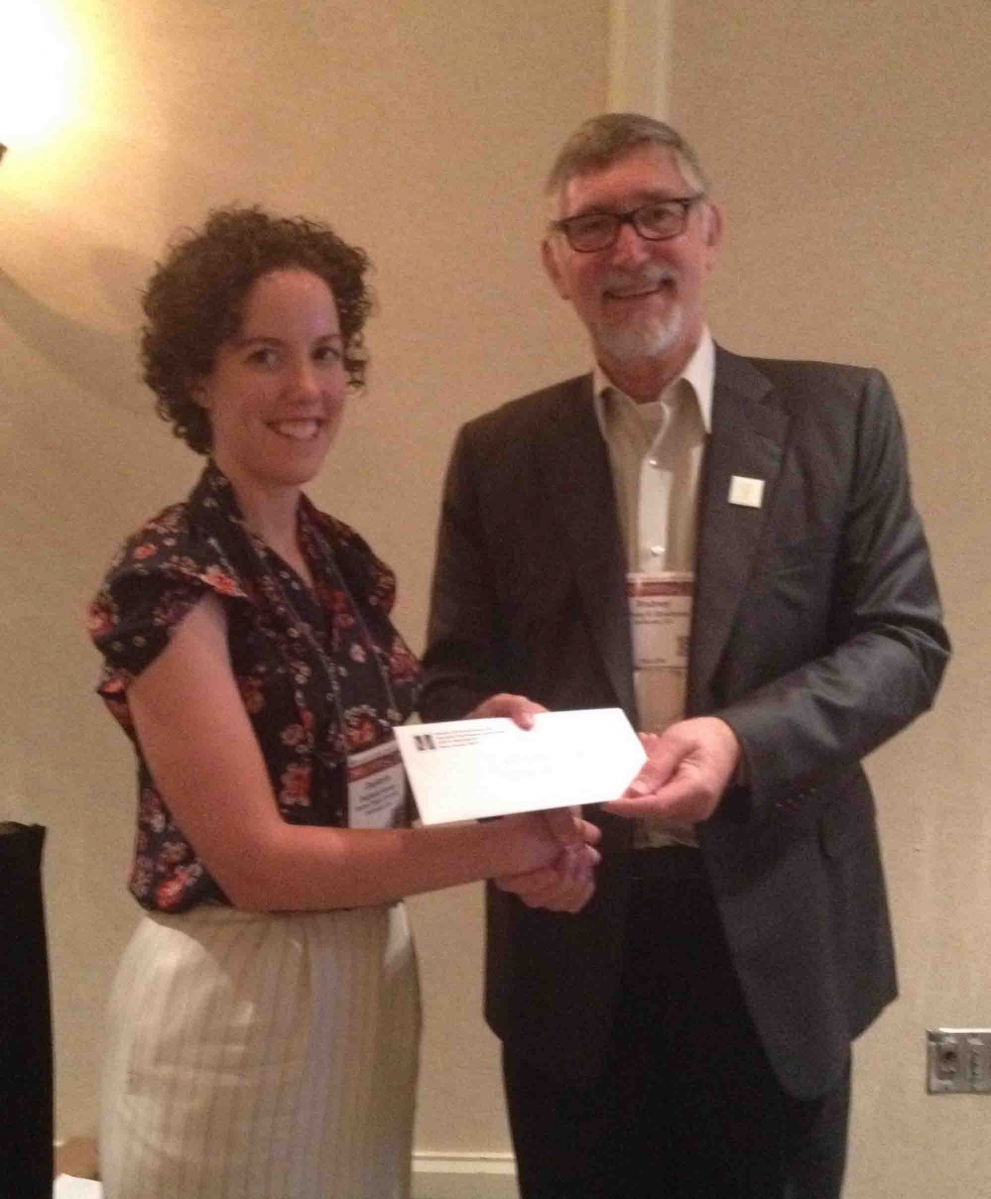WOU Conducts Research to Improve the Lives of Latino Adolescents
August 28, 2015
By Carol Dennis

“Culturally accommodated treatment is psychotherapy that pays attention to culture,” Dr. Hoover says. “It’s about delivering mental health services that make sense and are effective with diverse communities.”
According to Dr. Hoover, psychotherapy has historically been developed based primarily on the experiences of white adults. Then the assumption is made that the same techniques and treatments would be as effective with diverse groups, and with younger people.
Looking at the inequities in the mental health system
“We’re looking at inequities in the mental health system and questioning some of those assumptions about what therapy is effective,” Hoover continues. “This research will be part of the multicultural psychology literature, to make sure we’re doing right by the communities we’re a part of.”
This work builds on a research study that Hoover was involved with during her time at the University of Utah (UT). In that study, Latino adolescents went through a series of 12 group therapy sessions. Some of the youth were assigned to the Culturally Accommodated Treatment, others to Standard Treatment.
"The focus of the treatment outcome study from UT (with
Jason Burrow-Sanchez as the Principal Investigator) was which active treatment yielded better treatment
outcomes - reduced substance use," Hoover says.
The continued look at the data
In this extension of that work, Hoover and her team will be looking at the transcripts of the audio recordings from the 12th and final
session, which is a review of the entire therapy experience.
"A lot of times the research looks at outcomes, but not actual in-session
experiences of therapy," Hoover explains. "What else will we find regarding ethnic identity and self awareness that might influence the field? That's what's so exciting about this work."
The study, titled “In-session process of culturally
accommodated and standard therapy in Latino adolescents” will be conducted as a collaboration between the Department of Psychological Sciences and The Research Institute at Western Oregon University.
Hoover is leading a
research team of student Research Assistants (RAs) who she mentors through a specific kind of research called Consensual Qualitative Research (CQR). Of the four under-graduate students, two had worked
with Stephanie last year on the initial data on ethnic identity and adjustment.
"What we were looking at last year was how adolescents were talking about, not just their ethnic identity, but generally their sense of self, as well as their ways of coping with their experiences of oppression," Dr. Hoover says.
The work this year
The focus of the work this year will be to first comb through the transcripts of this final session, making sure it accurately reflects what was said. "The research team really engages with the data," Dr. Hoover says. "The remainder of the year will be conducting CQR
analysis. The team makes decisions about how the
different quotes from the session group together and relate to each other. By the
end, the team will have distilled the data to a set of domains and categories. It’s an iterative process that takes a lot of time and
intensity."

WOU is a teaching intensive university
“Since WOU is a teaching intensive university and mentoring of students researchers is a big deal,” says Hoover, “a lot of my time in the fall will be helping my RAs, facilitate them learning from each other, as well as my role teaching them about what we’re doing. And a lot of that will happen by immersion into that data.”
Chehalis Strapp, Ph.D., Professor and Chair of the Behavioral Sciences Division at WOU, reflected on what this study will mean to the students participating in the research. She stated that typically these undergraduate RAs are well versed in
quantitative research methods. However, "with Dr. Hoover's mentoring,
these students are immersing themselves in qualitative data, learning
new methods of analysis and changing the way that they think about and
practice research," Dr. Strapp continues.
She explains that working with Dr. Hoover, these students are having a
graduate-level research experience that is bound to support their
professional development.
The importance of this work
Dr. Strapp is very excited to have this work coming out of her department at WOU. "Dr. Hoover's work is groundbreaking and has the
potential to change how we conceptualize treatment for diverse
populations."
"We need to work toward really clear guidelines or principles of cultural adaptation that are empirically based," Dr. Hoover sums up. "It's important to me to continue in this line of research to add participant voices – to add Latino adolescents’ voices to the conversation about what makes good treatment, what should be happening in good treatment."
The Society for the Advancement of Psychotherapy is affiliated with the American Psychological Association (APA). Dr. Hoover is very excited that they were interested in investing resources toward creating specific therapy strategies for communities of color, and people of diverse ethnic and cultural backgrounds.
Recent News Items
Closing the Achievement Gap Through STEM Education Nov 18, 2016
TRI Staff Members Present at NAEYC Conference in Los Angeles Nov 10, 2016
Three More Years for Campus Against Sexual Assault Program Nov 9, 2016
TRI's Serra Acar Appointed as DEC Recommended Practices Ambassador for Oregon Oct 13, 2016